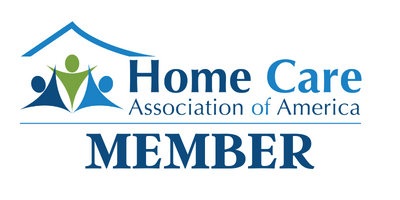None of us want to face the declining health of our parents. Whether it’s confusion over the sequence of events in the recent past, an injury, or medical issue that has them in a vulnerable state, there comes a time when our parents need home health care. You may notice when you talk to them on the phone that there’s an unusual lull in the conversation or an unusual emotional response to a discussion. When you go home to visit your parents, you might see a change in their appearance or the condition of their home since the last time you saw them.
Looking out for early signs of deteriorating health, while uncomfortable to face, is actually an empowering time for both you and your parents. With some foresight, you have some time to address issues before they escalate to emergency. You can put together a plan to help them remain independent as long as possible.
Here are a few signs that your aging parents may need some home health care support:
1 – They are experiencing more health issues than normal.
Older adults experience increased health issues, and their complaints need to be taken seriously. Loneliness and the desire for attention and more visits can be to blame, but when your elderly parent complains more than usual about their health, it’s a cue to pay attention. Frequent trips to the doctors or the hospital are costly and inconvenient. They also indicate a decline in health on some level. When an older person’s health begins to fail, their mobility and self-care also suffer, creating a domino effect that leads to the need for greater care. If you attend to these complaints and issues early on, some weekly home health care visits may be just what they need to keep their health and emotional needs in check.
2 – They were recently diagnosed with a serious medical condition.
Older adults often require education and skilled care following a diagnosis of a serious illness. While diagnoses such as diabetes, breathing issues, heart conditions, and memory issues are very serious, they can often be treated at home with the help of skilled nursing care. A licensed nurse, occupational or physical therapist, or even a home health or personal care aide can help them manage their needs and stay out of the hospital or long-term care unit.
3 – They’ve recently had major surgery.
Older adults who need help recovering from surgery can do very well with the assistance of home health care. People do better in their own homes with their own things. When it’s possible to support their recuperation needs at home, it is always a great alternative to nursing facilities. When an older adult has been recently hospitalized or had a change in their health status, they may be eligible for covered home health care by Medicare or their health insurance.
4 – They’re trying to manage multiple chronic health conditions.
Three in four Americans aged 65 and over has multiple chronic health conditions. This increases their risk of needing to go to the hospital. They also usually struggle with daily activities such as cooking, cleaning and self-care. What used to be normal activities becomes too burdensome. They are likely taking multiple prescription medications as well. It’s a lot to ask an older adult, already struggling with physical ailments, to manage without some help.
5 – They recently had a fall.
One of the most common accidents for older adults are falls. Aging brings on changes in eyesight, balance, strength and agility. If you see your aging parent holding onto furniture while moving about the house, or looking shaking when taking stairs, you need to be worried about the prospect of a fall. Perhaps you’ve noticed that they leave the house less, or move less in general. Moving less, of course, can create a greater risk of falls, and brings on other health concerns. Falls are a sign that your parent needs help. This help can come in the form of safety measures and adaptations in their home. It also can help considerably to bring in assistance by way of home health or personal care. This additional support can make a big difference in keeping your parent safe and healthy.
6 – Their routines, appearance, or activities have changed.
If you notice your senior parent is no longer going to the weekly card game they’ve enjoyed for years, there may be cause for concern. If you visit and they are looking disheveled or their home is unusually messy, these are all signs that your parent doesn’t have the energy or ability to do their typical daily activities. It’s common for an aging adult to try to hide their difficulties by adjusting their routines or living habits. They may have stopped traveling or doing things they enjoy because they are afraid of a fall, gatherings feel overwhelming, or it’s difficult for them to follow conversations. Unfortunately, this causes increased isolation and anxiety – all making the problems worse. Increased isolation increases the risk for dementia, depression, infection, and many other health concerns.
7 – They’ve lost or gained a noticeable amount of weight.
When you make a visit to your parent’s, check their cupboards and refrigerator. Is there a good stock of healthy food, or are the shelves filled with prepared foods of low nutritional value. Or worse, their shelves are barren. Weight changes can be a sign of many health problems, or could indicate that your parent is struggling with daily tasks such as shopping or cooking. Older adults with mobility, memory or diseases such as Parkinson’s often need help at home to manage the tasks of shopping and meal prep. A home personal care services provider can help with these daily tasks.
8 – They are regularly forgetful, defensive, or make poor choices.
Research shows that 25%of older adults take at least five medications daily to treat chronic conditions. About 50% of them do not take their medications properly. This all leads to worsening medical conditions and the need for more extensive care. Skipping doses or taking too much medication can lead to serious health complications. Take a look at your parents’ pill bottles – do they seem organized or are they spread all over the house?
Anyone can get defensive when asked personal questions or when we feel like someone is prying into our personal business. Senior adults can feel even more threatened when asked personal questions. If your parent is unusually defensive when asked about their daily routine, a decision they made, or what their plans are, it can be a sign of a more serious medical condition. Memory loss, in its early stages, is often marked by defensiveness and hostility.
In an effort to self-medicate loneliness and loss, many older adults turn to alcohol or other destructive self-soothing behaviors. They can be easy marks for swindlers and financial scams. If your older parent is driving unsafely, seems to have run out of financial resources, or simply will not answer your basic questions, there may be cause for concern.
Home health care can make a huge difference.
Everyone deserves to be treated with respect, dignity, and to maintain their own privacy. When you have aging parents, your job is not to pry or snoop, but rather to keep a keen eye out for red flags. Do your best to have a constructive conversation about their health and safety. Acknowledge that any change may feel like a loss of independence to them. The great part about home health care services is that the senior can stay right in their home where they are most comfortable! Bringing in home health and personal care services allows your parent to stay in their home longer, but in a safe and supported manner.
How Arcadia New England Can Help
At Arcadia New England, our highly-skilled and carefully screened caregivers are ready to begin assisting with whatever care your parent may need. We provide extensive training, as well as ongoing education to all our caregivers, so you can rest assured you have a highly qualified individual caring for your loved one.
We are here to provide assistance with daily needs such as meals, bathing and dressing to more extensive medical needs such as after surgery care, dementia care and end of life comfort.
Our Home Health Care Services include:
- Home Care Assistance
- After Surgery Care
- Ongoing Medical Care
- Personal Care
- 24-Hour, Live-In Care
- Alzheimer’s & Dementia Care
- End of Life Comfort Care
- Respite Care
- Elderly Care
We want our seniors to continue to live independently as long as possible, while getting the help they need to be healthy, safe and feel secure. Call Us today so we can schedule a time to meet with you and your loved one!


